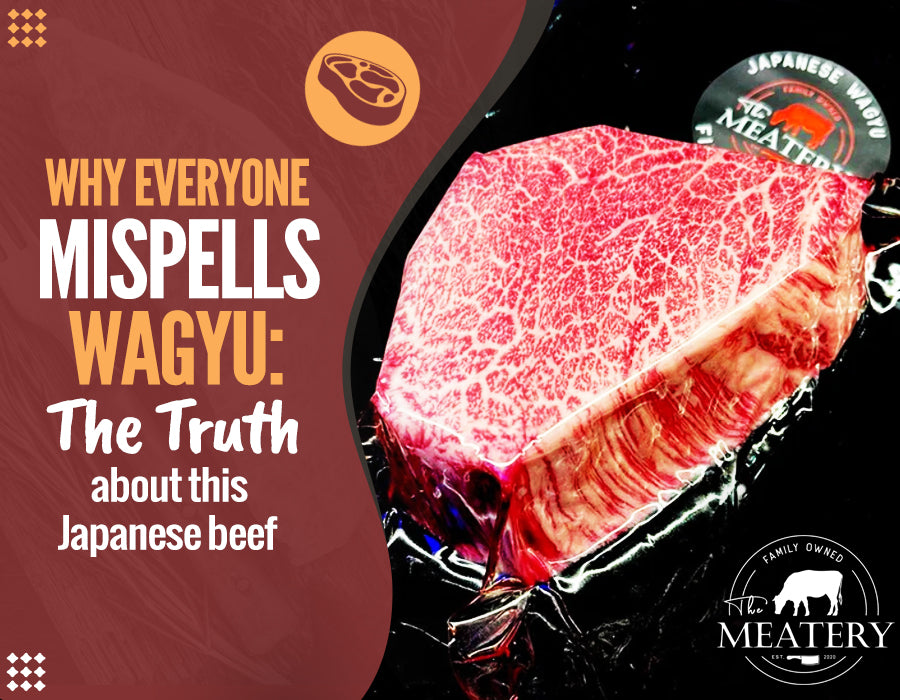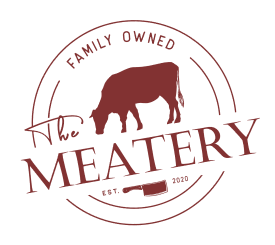Do you know the right way to spell wagyu? If not, don't feel bad. Most people get it wrong. Wagyu is a type of beef that comes from Japan, and it is known for its incredible flavor and tenderness. But because wagyu is such a unique word, many people tend to spell it wrong. In this blog post, we will explore the history of wagyu beef and why everyone spells it "waygu." We will also provide some tips on how to pronounce wagyu correctly. So if you're interested in learning more about this delicious Japanese beef, keep reading!
History of Japanese A5 Wagyu
Wagyu beef has been around for centuries. The word wagyu actually means "Japanese cow" in Japanese. Wagyu cattle were originally bred in Japan for their strength and endurance. They were used for carrying heavy loads and plowing fields. Today, wagyu beef is prized for its marbled texture and rich flavor. The most famous type of wagyu beef is Kobe Beef, which comes from the city of Kobe in Japan. Only a few vendors in the United States are licensed to sell authentic Kobe Beef and The Meatery is proud to be one of those selected few.
"Waygu"
So why do people spell wagyu as "waygu?" There are a few theories. One theory is that because wagyu is such a rare and expensive type of beef, people want to make it sound more exotic by spelling it incorrectly. Another theory is that people simply don't know how to spell wagyu correctly. Whatever the reason, the misspelling of wagyu is so common that even some restaurants get it wrong!
Things to Know Before Eating Wagyu
If you're interested in trying wagyu beef, there are a few things you should know. First of all, wagyu beef is usually more expensive than other types of beef. This is because wagyu cattle are raised in a very specific way and fed a special diet that gives the beef its unique flavor and texture.
Wagyu beef is also typically served rare or medium-rare, so it's important to ask your waiter or chef how you would like your steak cooked. For those trying it at home, premium cuts like the Japanese A5 Wagyu Striploin or Ribeye require minimal seasoning and quick searing to achieve the perfect balance of tenderness and flavor. The high marbling ensures a juicy, melt-in-your-mouth experience that’s best enjoyed when cooked to medium-rare.
Finally, when pronouncing Wagyu, remember to say "wah-gyoo" and not "way-goo." Now that you know the correct way to spell and pronounce Wagyu, you can impress your friends with your knowledge of this delicious Japanese beef and even share the luxury of an A5 Wagyu steak at your next dinner party!
Understanding the Different Grades of Wagyu Beef
Wagyu beef is renowned for its exceptional quality, which is reflected in its grading system. In Japan, Wagyu beef is classified into several grades based on factors like marbling, color, and texture. The primary grades are A5, A4, A3, B5, and so on, with A5 being the highest.
-
A5 Grade: This is the pinnacle of Wagyu quality. It features the highest level of marbling (intramuscular fat), resulting in an incredibly tender and flavorful beef. The meat has a rich, buttery texture that melts in your mouth.
-
A4 and A3 Grades: These grades also offer high-quality marbling but with slightly less fat compared to A5. They are still exceptional and provide a rich, tender eating experience.
-
B and C Grades: These grades are less common in high-end markets and have lower levels of marbling and overall quality compared to the A grades. They are more affordable but lack the premium characteristics of A-grade Wagyu.
Understanding these grades helps consumers make informed choices about their Wagyu beef purchases, ensuring they get the quality they’re seeking.
The Unique Farming Practices Behind Wagyu Cattle
Wagyu cattle are raised using unique and meticulous farming practices that contribute to their exceptional quality.
-
Special Diet: Wagyu cattle are fed a special diet that often includes high-quality grains and sometimes even beer or sake mash. This diet helps develop the high level of marbling that is characteristic of Wagyu beef.
-
Stress-Free Environment: The cattle are raised in a stress-free environment to ensure that the meat remains tender and flavorful. Stress can negatively impact the quality of meat, so farmers go to great lengths to maintain a calm atmosphere.
-
Detailed Care: Farmers carefully monitor the health and well-being of each cow. This attention to detail includes regular check-ups and ensuring that the cattle have ample space to move around, which contributes to their overall health and the quality of the meat.
These practices are integral to producing the high-quality Wagyu beef that is prized around the world.
Why Wagyu Beef is Considered a Luxury Item
Wagyu beef is often considered a luxury item due to its rarity, quality, and the intricate farming methods involved in its production.
-
Rarity: Authentic Wagyu beef, particularly from Japan, is relatively rare. The strict breeding and grading standards, along with the limited number of Wagyu cattle, contribute to its exclusivity.
-
Quality: The high level of marbling in Wagyu beef results in a rich, buttery flavor and an exceptional tenderness that is unmatched by most other types of beef. This quality is a major factor in its luxury status.
-
Cost: The extensive care and special diet required to raise Wagyu cattle lead to higher production costs, which translates into a higher price for consumers. This price reflects the quality and exclusivity of the product.
Wagyu’s luxurious reputation is a combination of its exceptional taste, rare availability, and the high costs associated with its production.
Comparing Wagyu Beef to Other Premium Beef Types
When comparing Wagyu beef to other premium beef types, several factors highlight its unique characteristics.
-
Marbling: Wagyu beef is known for its superior marbling compared to other premium beef types like USDA Prime or Angus. The marbling in Wagyu beef provides a distinctively tender and flavorful eating experience.
-
Texture and Flavor: Wagyu beef’s texture is often described as buttery and smooth, with a rich flavor that sets it apart from other premium beef. While USDA Prime and Angus are high-quality, they generally lack the same level of marbling and flavor complexity.
-
Cost and Availability: Wagyu beef is typically more expensive and less widely available than other premium beef types. This exclusivity contributes to its status as a luxury item.
-
Farming Practices: The farming methods for Wagyu are more specialized compared to those for other premium beef types. Wagyu cattle are often raised with a more detailed and attentive approach, contributing to the unique qualities of the beef.
Overall, while other premium beef types offer high quality, Wagyu’s distinctive marbling, flavor, and rarity make it stand out in the world of gourmet beef.
Final Note: Why The Meatery Is Your Trusted Source for Authentic Wagyu
It is very important to source your Wagyu from a reputable supplier. When purchasing Japanese A5 Wagyu in particular, ensure that you are receiving a Certificate of Authenticity that includes the noseprint of the cow along with the ID number (you can look this up on a Japanese website if you so wish, pretty cool!).
The Meatery goes above and beyond by providing not just premium Wagyu cuts, but also the assurance of authenticity with every purchase. From Japanese A5 Wagyu to Australian and American variations, each product is hand-selected and certified, giving you confidence in what you're buying. With The Meatery’s commitment to quality, you can experience the unparalleled taste of genuine Wagyu, knowing you’re getting the real deal.
Want to browse The Meatery's selection of Japanese, Australian and American Wagyu? Here's a link to view all of The Meatery Wagyu.









